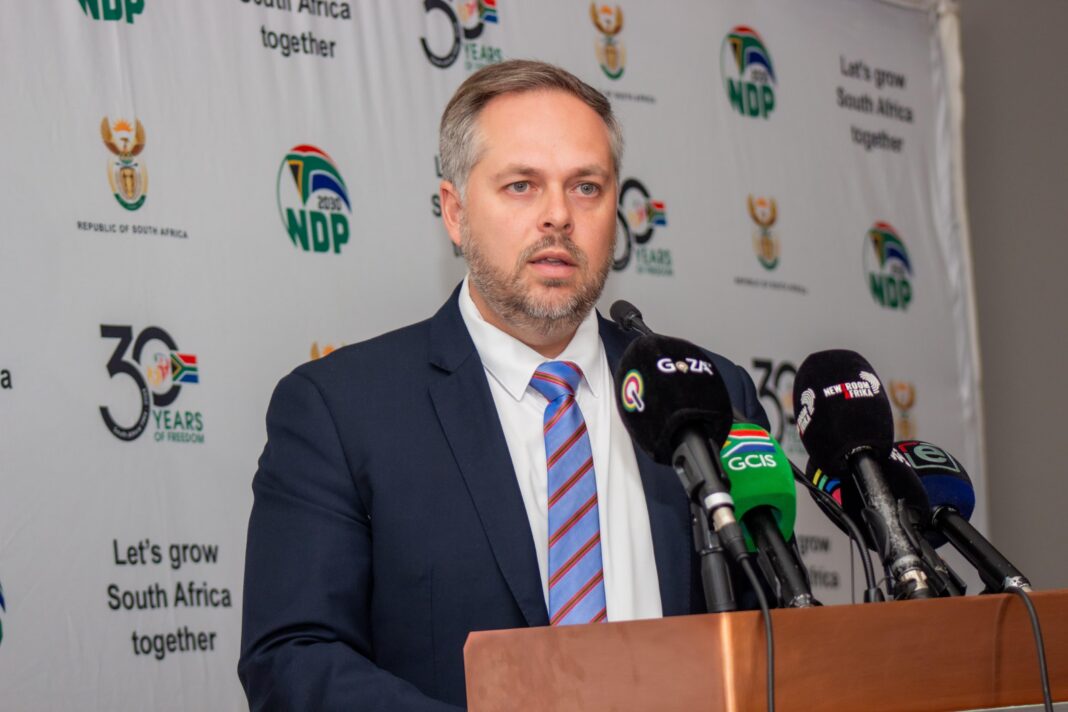By Akani Nkuna
In a coordinated effort to enhance accountability and combat illegal activities, key government agencies have joined forces to tighten control over South Africa’s borders and immigration processes.
The Special Investigating Unit, Department of Home Affairs, Border Management Authority and the National Prosecuting Authority are working together to root out corruption, fraud and criminal networks operating within the country’s immigration system.
This multi-agency initiative aims to strengthen law enforcement efforts, ensuring border security and integrity in the face of increasing criminal syndicates at borders, which threaten the country’s national security.
“The sum total of this work represents the biggest and most decisive crackdown on corruption to date in the immigration sector,” Home Affairs Minister Leon Schreiber told reporters on Tuesday.
“By working together every day, we are painstakingly washing the stain of corruption and state capture off of Home Affairs so that we can transform the department and BMA into the proud institutions they deserve to be.”
Speaking at the launch of the Border Management and Immigration Anti-Corruption Forum in Pretoria, Schreiber said the initiative was a crucial element in the intensified and coordinated efforts by law enforcement agencies to combat corruption in the sector.
He said that there had already been some movement on clamping down on dodgy officials at the department. Between July 2024 and February 2025, eight individuals were convicted and sentenced to prison terms ranging from four to 18 years, while criminal proceedings against 19 others were currently in progress. They were facing a range of charges including fraud, corruption and sexual misconduct.
“At the BMA over the same period, 10 officials have been dismissed for corruption, and one for aiding and abetting. Another 45 BMA cases are at various stages in the disciplinary process and could result in further dismissals,” he added.
“Just as important as the dismissal and prosecutions themselves, is the pace at which they are taking place. In this regard, I want to warmly congratulate the Multi-Disciplinary Task Team for achieving a major legal breakthrough in the Labour Court.
“It is one of our cases that a new precedent was set that allows for disciplinary hearings, changing the interpretation of collective agreements in place since 2001 and enabling more impartial disciplinary processes across the whole of government.”
Schreiber stressed the importance of innovative and up-to-date solutions, highlighting technology as a key asset in addressing persistent dysfunctions within the sector.
“One of the fundamental pillars of our commitment to digital transformation is to employ technology in ways that prevent and detect corruption to uproot corrupt networks altogether.”
NPA boss Shamila Batohi said that corruption in border management and immigration presented major challenges, undermining security, economic stability and the safety of citizens.
“Our ability to control and monitor our borders is a key pillar of state security and when these systems are vulnerable to corruption, the consequences are dire. BMIACF is a powerful step in fostering collaboration between the various stakeholders including civil society [to combat crime],” she said.
Batohi said the initiative aligned with the National Anti-Corruption Strategy.

SIU head and BMIACF chairperson Adv. Andy Mothibi told reporters that the forum was backed by the G20 countries and reinforced by alignment with the United Nations Convention against Corruption.
“We need this forum to play a key role in the prevention framework. We have now reached a stage where we have drafted a draft corruption risk management and prevention framework. We really hope as the private sector to up the bar in implementing prevention measures against corruption,” Mothibi said.
He said the SIU, in collaboration with the department, was investigating allegations of corruption, maladministration and malpractice in the issuance of permanent residence permits, corporate visas, business visas, critical and exceptional skills work visas, study visas and retired person visas.
“We have referred about 110 referrals for study visas to be revoked and we know that we have to follow legal processes to ultimately have them revoked. This really shows the importance of diving deep into investigations and finding areas where the processes were beset by fraud and corruption,” he added.
INSIDE POLITICS

